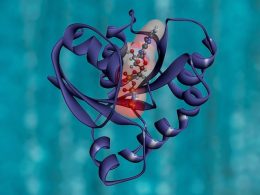Introduction
Are you struggling to get a good night’s sleep? You might want to take a closer look at your diet. It turns out that what you eat can have a significant impact on the quality of your sleep. From foods that promote relaxation and reduce stress to those that interfere with sleep, there is a surprising link between what we eat and how we rest. In this blog post, we’ll explore the connection between diet and sleep, highlight some of the best foods for promoting healthy slumber, and offer tips for timing meals in a way that maximizes their benefits. So let’s dive in!
The Link Between Sleep and Diet
It’s no secret that getting enough sleep is vital for our overall health and well-being. But did you know that what we eat can also have a significant impact on the quality of our sleep?
Research has shown that there is indeed a link between sleep and diet, with certain foods affecting our ability to fall asleep, stay asleep, and wake up feeling refreshed. One study found that people who ate a high-carbohydrate meal four hours before bed fell asleep faster than those who consumed a high-fat meal at the same time.
In addition to timing, the type of food we eat can also influence our sleep patterns. Foods rich in tryptophan (such as turkey, chicken, bananas, nuts) are known to promote relaxation and drowsiness due to their ability to increase serotonin levels in the brain.
On the other hand, consuming caffeine or alcohol close to bedtime can disrupt our natural sleep cycle by delaying the onset of REM (rapid eye movement) sleep – which is essential for proper restorative functions within the body.
It’s clear that there is a connection between what we put into our bodies and how well we rest at night. By making conscious dietary choices such as eating tryptophan-rich foods earlier in the day or limiting caffeine intake later on – we can improve not only our sleeping habits but also support long-term health benefits.
Foods That Help You Sleep
Eating the right foods can help you get a better night’s sleep. Certain foods contain nutrients that can promote relaxation and produce chemicals in the brain that aid in sleep. Here are some of the best foods to consume before bed.
First on the list is warm milk. Milk contains tryptophan, an amino acid that helps induce sleep by producing serotonin and melatonin in the brain. Drinking warm milk before bed could be just what you need to fall asleep faster.
Another food that promotes sleep is tart cherry juice. Tart cherries contain melatonin, which regulates your body’s internal clock and promotes healthy sleep patterns. A small glass of tart cherry juice before bed may help improve overall sleep quality.
Next up is almonds, which are a great source of magnesium – a mineral known for its calming effects on the body and mind. Eating a handful of almonds as a bedtime snack could help reduce muscle tension and promote relaxation.
Bananas are also great for promoting restful sleep due to their high levels of potassium and vitamin B6 – both important nutrients involved in regulating your sleeping cycle.
Incorporating these foods into your diet may not only improve your overall health but can also lead to better quality rest at night. Remember, eating well isn’t just about maintaining physical fitness; it’s also about getting enough essential vitamins and minerals needed for optimal performance during waking hours while allowing yourself proper recovery time via adequate amounts of good-quality shut-eye!
The Best Time to Eat for Sleep
The timing of our meals can significantly affect the quality and duration of our sleep. Eating too much, too late in the evening can interfere with our body’s natural circadian rhythm, making it more difficult to fall asleep or stay asleep throughout the night.
Research has found that eating a large meal within two to three hours before bedtime may cause discomfort and indigestion, leading to poor sleep quality. On the other hand, going to bed hungry may also disrupt our sleep as hunger pangs make it harder for us to relax.
The ideal time to eat for better sleep is 3-4 hours before bedtime. This allows enough time for digestion without feeling uncomfortably full or hungry. A light snack such as nuts, cheese or warm milk can also aid sleep if eaten one hour prior to bedtime.
It’s important not only to consider what we eat but when we eat it in order to optimize our overall health and wellbeing. By honoring these guidelines around meal timing, we can improve both the quantity and quality of our precious slumber!
Conclusion
In summary, the link between diet and sleep is undeniable. What we eat has a significant impact on how well we sleep at night. It’s important to make healthy food choices throughout the day and avoid foods that can interfere with our sleep patterns.
By incorporating more tryptophan-rich foods into our diets such as turkey, nuts, and tofu, we can boost serotonin levels which are essential for good sleep. Eating lighter meals in the evening hours will also help us fall asleep faster.
Remember to listen to your body when it comes to eating and sleeping habits. Everyone is unique, so what works for one person may not work for another. Experiment with different foods and meal times until you find what helps you get a restful night’s sleep.
Sweet dreams!











